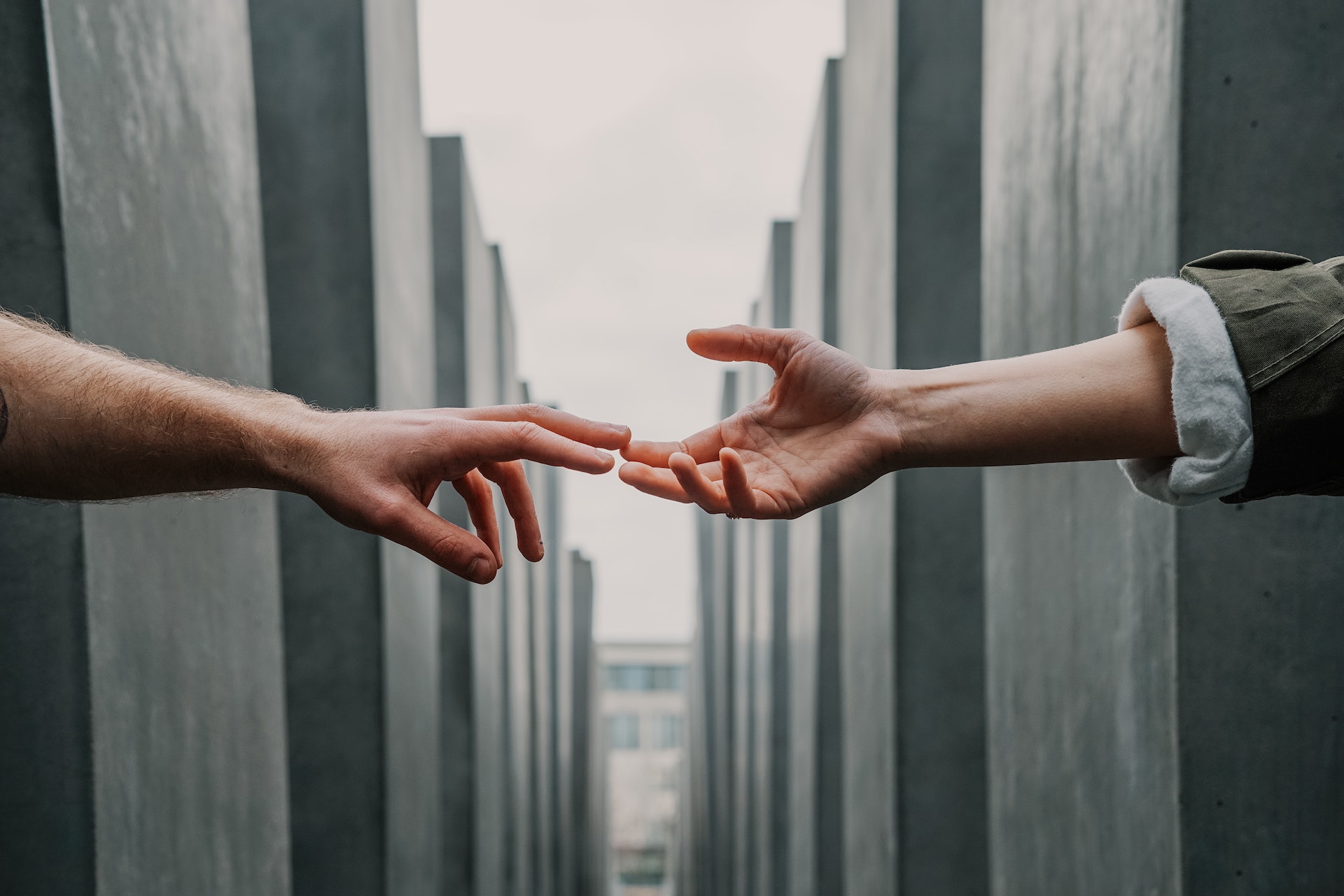I remember being a shy kid, hiding behind my mom’s flowy dress, and peering out of the ruffle with one eye at new strangers chatting away. With this memory comes the one of my dad coaxing me out of hiding eyebrows raised as if to say you know what to do. I’d offer my right hand, shake, shake, nice to meet you, and look for a proud smile from my dad.
Many of us have heard and practiced this common-place greeting advice. It goes something like this:
- You have to grip their hand strongly. No dead fish! No one will respect you if you offer up a dead fish handshake.
- Look them in the eyes when you shake. Meet their stare to tell them you mean business.
Looking to the future of the business handshake
In America, most of us were introduced to this advice as young children. It was among the earliest social etiquette practices we learned, along with “Say please, and thank you.”
We base first impressions with acquaintances and potential business deals on a firm handshake. It has been widely adopted as an international greeting and a sign of respect within business communities.
Yet, that’s all changing.
It’s time for society to rethink greetings in the wake of COVID-19. We are all encouraged to adapt to new behaviors, and that includes how we interact. As a result, the future of the business handshake is grim.

A leader in the fight against the U.S. Coronavirus outbreak, Dr. Anthony Fauci, recently told the Wall Street Journal, “I don’t think we should ever shake hands ever again, to be honest with you.”
A member of ResearchGate, a professional network for scientists and researchers, posed the question, “Is it time to dispense with handshake greetings?” Further adding, “Handshaking can spread disease. It is beneficial to inhibit spreading disease. So it follows that it would be beneficial to inhibit handshaking.”
Don't shake hands. Avoid any direct contact. pic.twitter.com/leRFqCriND
— Andrew Cuomo (@NYGovCuomo) May 5, 2020
Although the custom of shaking hands dates back to early Mesopotamia, Classical Greece, and Egypt as a sign of trust, it’s not an impossible habit to break. Throughout history, we’ve seen established customs change due to environmental circumstances. The cheek-kiss or “la bise” is a traditional French custom dating back to the middle ages. Yet, when the Black Plague began, faire la bise immediately stopped. It remained dead for the next several centuries, only to be resurrected a little more than a century ago.
Amid the COVID-19 outbreak, “the French minister of health, Olivier Véran, discussed the government’s measures against the disease’s spread. Observing that ‘the smallest gestures offer the greatest protection,’ Véran urged the French to avoid shaking hands with others. But does this apply, a journalist asked, to faire la bise, the traditional French greeting of kissing another’s cheeks? With a wan smile, Véran … added that the French should, for now, ban la bise.”
Creating connections in the absence of the handshake
Be prepared: social greetings after COVID-19 will look and feel a lot different from the last time you greeted someone.
Different forms of greeting already exist throughout the world. China, Japan, India, and the Middle East all practice various forms of greetings that do not involve physical touch. A head tilt, a bow, bumping elbows, the next greeting is out there and will naturally assert its dominance where the handshake once reigned.
While the alternatives seemingly do not offer the same reassurance, trust, and connectivity that human touch symbolizes, we will find other ways to compensate. Kate Vitasek, an authority on highly collaborative relationships, believes creating vested relationships and true connections will be the new priority, leading to a more honest way of work that focuses on reaching compromises and “we” thinking.
The handshake may be a thing of the past, but in its place, we might find a deeper connection through our practices.
Jessica Welch is passionate about helping others and sees her work with BigSpeak as a great way to help spread knowledge. Jessica received a Bachelor’s degree in English, Creative Writing with a minor in Anthropology from California Polytechnic State University. After graduating, she spent a year teaching at a low-income high school in Oahu, HI.
© YFS Magazine. All Rights Reserved. Copying prohibited. All material is protected by U.S. and international copyright laws. Unauthorized reproduction or distribution of this material is prohibited. Sharing of this material under Attribution-NonCommercial-NoDerivatives 4.0 International terms, listed here, is permitted.




